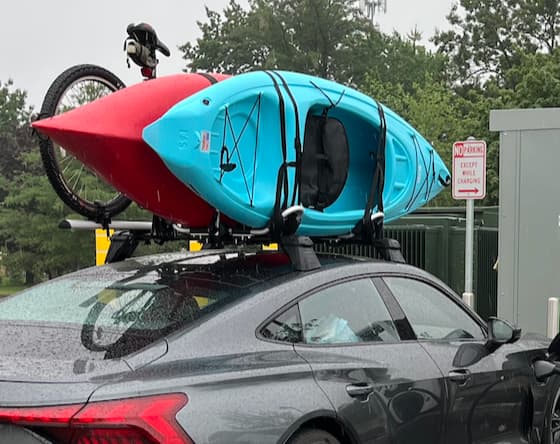Par for the course for Facebook, which used to (and still might - not sure if GDPR has improved this) make it onerous to delete all of your data: you had to delete your posts, comments, and photos one at a time. Not that any other social media networks are much better.
QElon is mad that Meta hired some of the thousands of people he fired, who then helped Meta stand up it Threads platform.
Good luck with that lawsuit.
Confidentiality clauses contained in NDA’s typically survive forced termination.
Not in California.
Confidentiality clauses do, but non-compete clauses don’t mean anything in California. One owns the knowledge in one’s head. I can create similar algorithms from my knowledge, I can’t cut and paste, use any non-public data, or obviously any asset of the former employer.
“Right to compete” laws in CA are strong.
I didn’t know this until yesterday, but it makes perfect sense for a tech-economy like NoCal. How are you going to bar someone who leaves a tech company from working for, basically, any other tech company? It’s a good setup for the workers, for the companies, and good for their economy as well.
That’s exactly right. However, the laws were formulated for the aerospace boom in SoCal back in the day and were in place to help along the tech boom of later years.
I was once asked to sign a non-compete agreement that gave ownership of everything I knew, including knowledge acquired prior to this employment, to this employer. Ironically, one of the skills I had acquired over the years that this employer wanted to bring in was my ability to read and interpret contracts.
Spoiler Alert: I didn’t sign that agreement.
I had a company try that shit on me. The wording was jaw-dropping. It would have prevented me from working for anyone else, or myself, in any remotely related field, forever. I didn’t “sign and return” as instructed. When HR called to ask about I lied and said I was having my attorney look at it first. They never called and asked again.
That agreement would not be enforceable in California.
I have to sign confidentiality agreements all the time, a lot of that is SEC driven. I am also under a general “use of company IP” limitation. But I can leave and go ply my professional skills somewhere else. Though I think my next move may be to go tend bar at a smoky jazz club somewhere.
The jazz alias “Duke Silver” is already taken, btw.
Chet Chaser ftw
I fancy myself more of one of the Charlie Berens types of bartenders. “What’s in a gin and tonic? What the hell kinda question is that?”
Oh, Jackie Daytona is also taken
I was thinking Spats Witherspoon.
Johnson P. Beauregaurd, Esq.
There was a saxophone player named Illinois Jacket.
Florida Pants? Texas T-Shirt? ehhh, never mind.
Bringing this back to EV’s, I drove my new EV to Cape Cod last weekend. It was really interesting to see the effects of environmentals on range. At 70mph in dry, warm weather, my car runs averages around 32kWh used per 100mi (32kWh/100mi). Which is around 105mpg equivalent in Newtons of energy used and cost for energy (105MPGe). With this cacophony on top:

…and in a driving rainstorm, consumption jumped to 54kWh/100mi (62MPGe). Of course, these aerodynamic and aquadynamic drag realities are the same for an ICE vehicle. I am now just more aware due to the charging/range implications until charging infrastructure is more built out. Just thought this was interesting.
Range anxiety is real.
The engineers on here should correct me, but I think the effect of the environment is more noticeable for the EV because of its efficiency. Since nearly 100% of the battery’s energy is used to move the car, any environmental factor - hills, wind - that requires more energy to overcome would result in a proportional decrease in range (mileage/kW). Since ICE are, at best, only 30-40% efficient, the impact of such factors on ICE mileage is less noticeable.
That is, a 20% increase in energy required to move is essentially a 20% drop in EV range, but is only a 8% drain on a 40% efficient ICE.